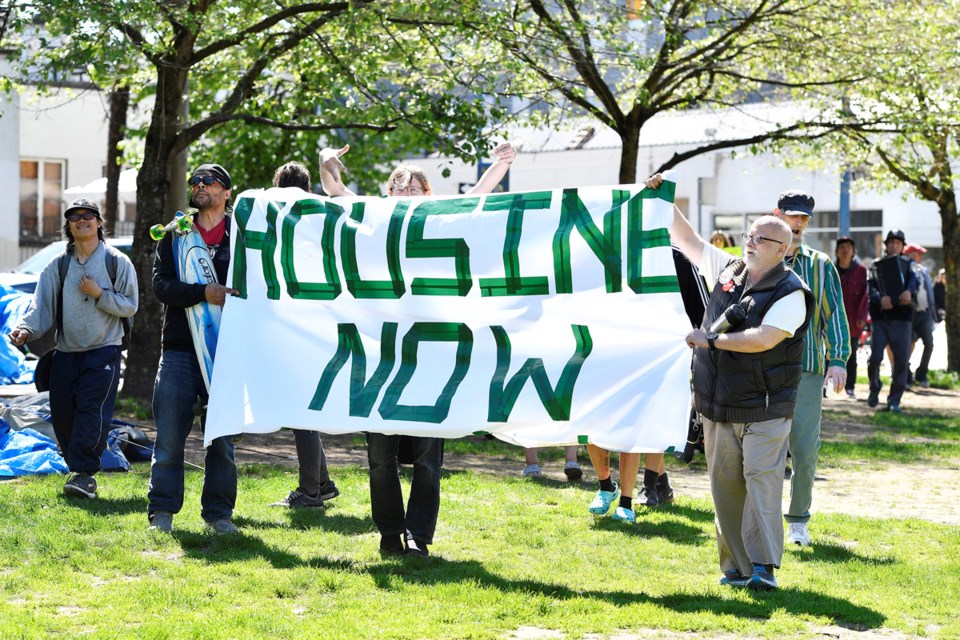Amid a backdrop of approximately 50 tents, dozens of protesters came out to support campers in the Downtown Eastside’s Oppenheimer Park on May 7, calling for more urgent action in the fight against homelessness.
Fiona York, a coordinator at the Carnegie Community Action Project, said demands are twofold: immediate support from the city to improve the living conditions in the park and longer-term solutions to provide more affordable housing to those who most need it.
“We need more shelter-rate housing,” said York. “There needs to be more investment by all levels of government into shelter-rate housing.”
Shelter rate, also known as welfare or ministry rate, is the cheapest form of housing in B.C. The current shelter rate is $375 a month for a single person and $570 a month for a couple or a single parent with a child — amounts which are deducted from a person’s monthly provincial income assistance.
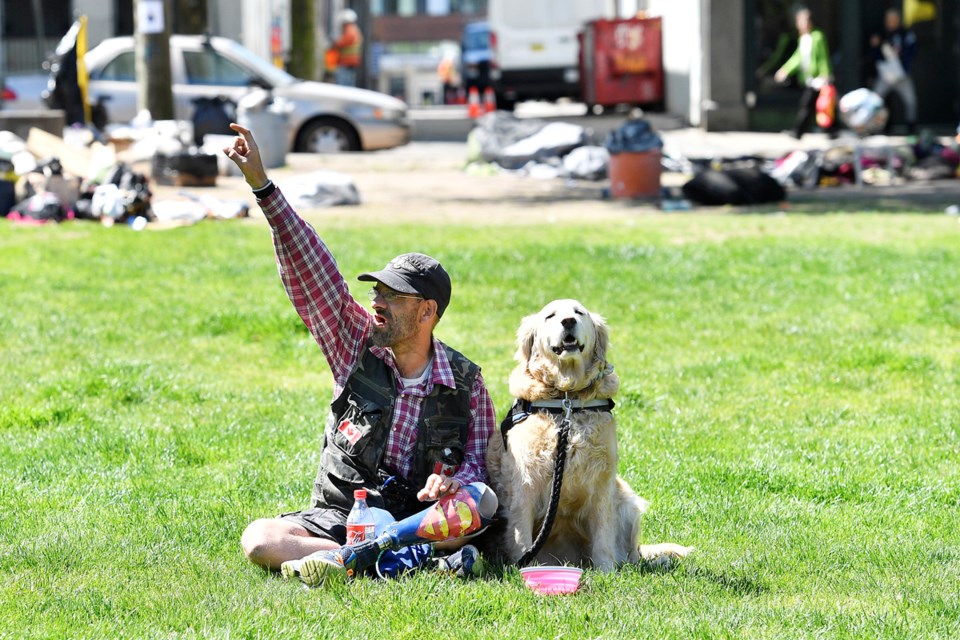
According to city statistics, 763 units of shelter-rate housing have been completed since the beginning of 2018, a large uptick compared to recent years. Most of those are temporary modular homes.
York also called on the city to move forward with motions passed by both city council and the park board at the end of March promising 24-hour-access washrooms, storage facilities for campers’ belongings and a warming station.
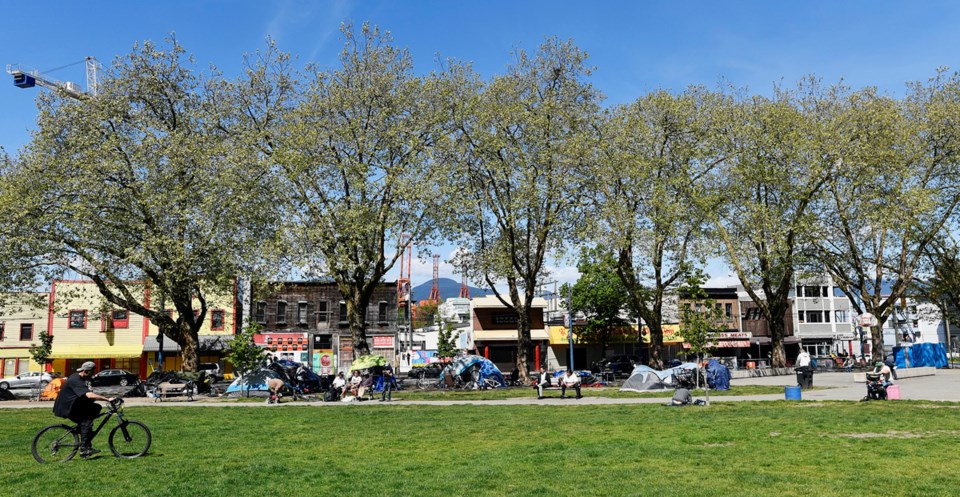
While the park board recently introduced multiple porta-potties, York says there has been no indication permanent washrooms with 24-hour access are on the way, nor is she hopeful the other supports will materialize.
“Just dropping in porta-potties — maybe that's the letter of the motion, but it's not really the spirit of the motion,” she said.
Vancouver Park Board Chair Stuart Mackinnon declined to comment on York’s concerns. However, NPA councillor Sarah Kirby Yung, a former park board commissioner, told the Courier city staff was still researching storage options.
The Oppenheimer demonstration came four days after city staff took down a controversial fence that temporarily cut off access to the interior field, reportedly displacing some campers and forcing others to the park’s edges.
“Keep on the grass!” read one protester’s sign on May 7.
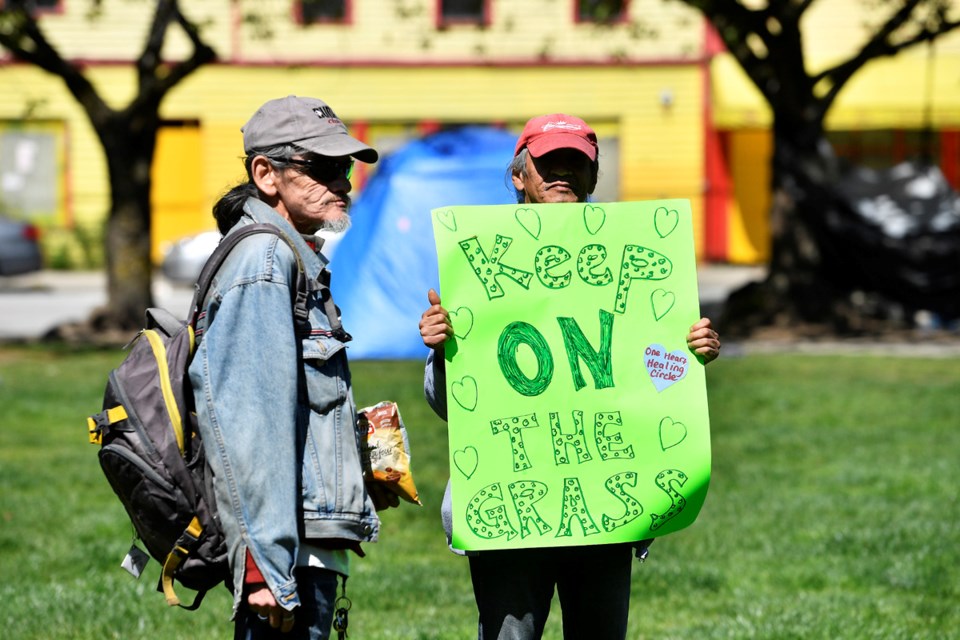
While activists believe the fencing was intended to “shut out and displace people who are trying to survive the housing crisis,” a May 3 statement from the park board insists that was not the case.
“The intent of the field repair work was to restore a healthy green grass area for all park users to enjoy,” read the statement. “Campers were not instructed to leave, but rather to move to another section of the park until the work on the grass was completed.”
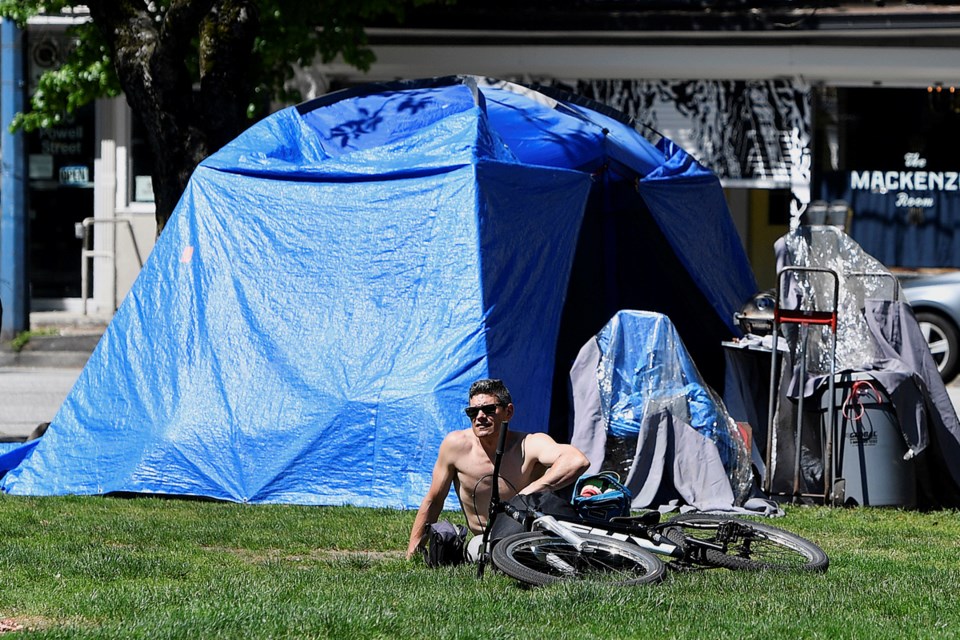
Sandy Parisien, an occupant of the many tents that dot the park, wishes the city would treat Oppenheimer campers with more respect.
During their daily “raids,” he says the city repeatedly confiscates personal items that he contends don’t pose hazards. Campers, including Parisien, also frequently complain about harassment from police, fire department and city workers.
“If they expect us to treat them with respect, show the same in return,” said Parisien. “Plain and simple.”
Captain Jonathan Gormick, a spokesperson for Vancouver Fire Rescue Services, says the fire department removes flammable material and other items that might be combustible. He also said campers must keep paths clear and maintain wide separations between tents to minimize fire hazards and ensure safe entry and exit into the park in the case of an emergency.
Additionally, campers cannot have secondary tents for storage, which might explain Parisien’s complaints of losing items he says didn’t necessarily present a safety hazard.
“We try to limit the amount of disruption to campers,” said Gormick. “Everything we do is just for safety.”
When asked what immediate action the city could take to improve the lives of those living in the park, Parisien was unequivocal.
"Leave us the f*** alone,” he said. “Leave us alone.”
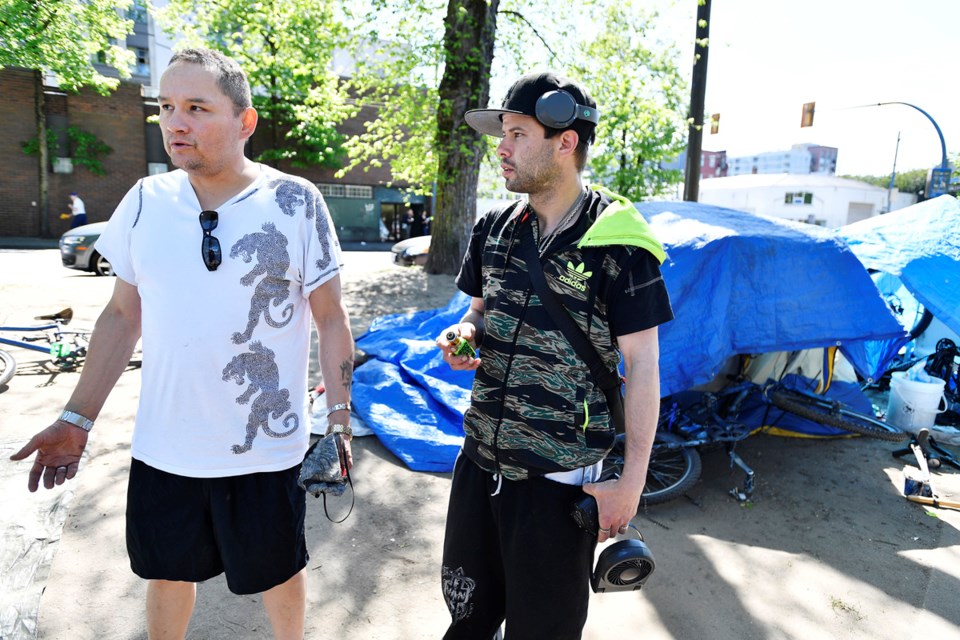
Parisien’s friend, Jacob Giles, who says he’s been camping in Oppenheimer since November, says he has lost a lot of items during raids, but would ultimately welcome more support from the city.
In particular, he mentioned a permanent washroom that would remain open all night. Storage space to keep campers’ personal belongings would also be “awesome,” says Giles.
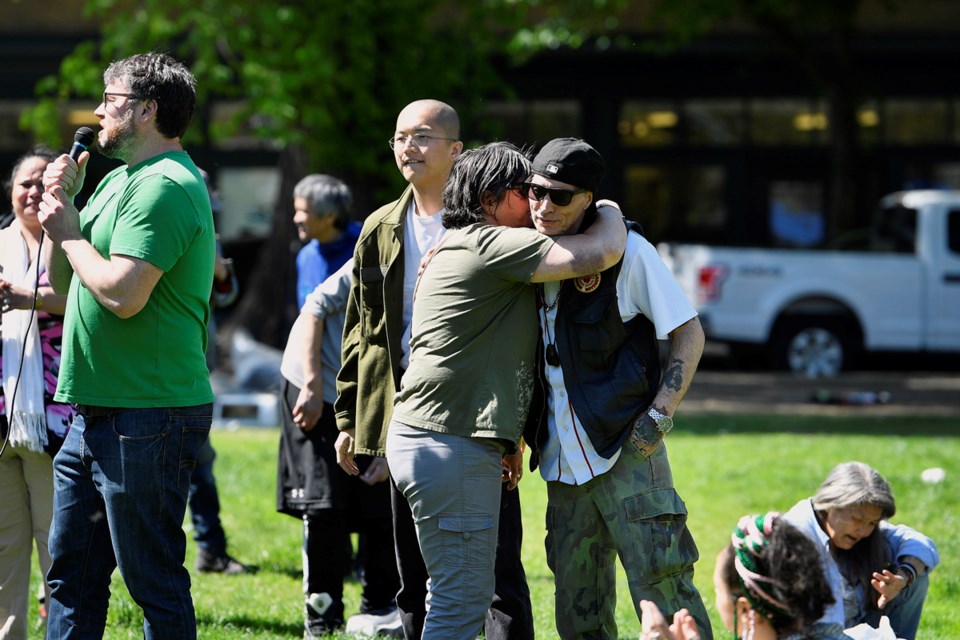
When it comes to housing the city’s most vulnerable, it’s about striking a balance, said councillor Kirby-Yung. “It's always a balance [between] those shorter-term measures with the longer-term [ones].”
That’s why temporary modular homes, which can be constructed much quicker than permanent housing, are so valuable, she added.
Mayor Kennedy Stewart agrees.
“I think modular housing is the probably the best thing to come along in a long time,” said Stewart. “I know that there’s a whole new round of modular housing coming out in the city. I’m expecting some of that but how much is what I’m working on.”
While city staff is currently in the process of identifying available land for more modular housing, municipalities typically depend on senior governments to fund most or all social housing development.
“We have to work hand in hand with the province and the other partners, because this is not sort of a one jurisdictional issue,” said Kirby-Yung. “This is something where everybody has to pull together.”
